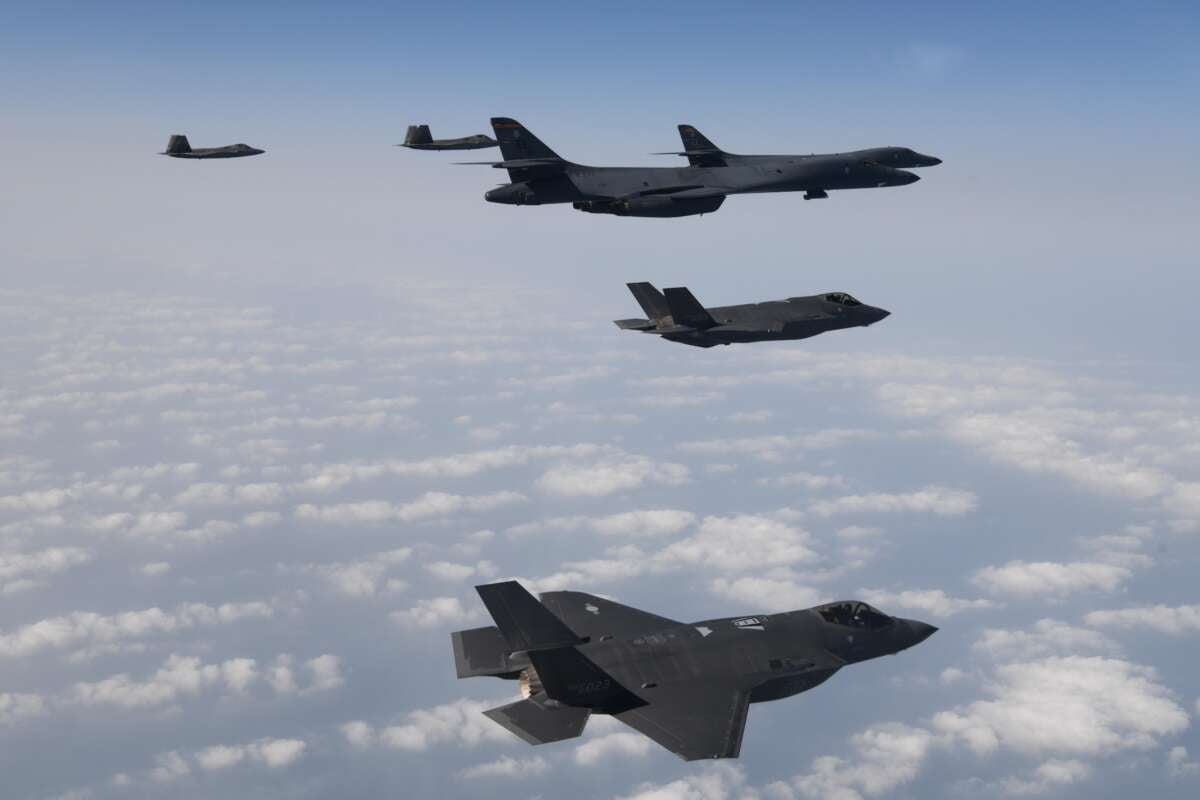If you looked at the U.S. military budget without knowing otherwise, you’d probably guess we were in World War III.
Our military spending is now the highest it’s been at any point since World War II — and Congress keeps adding more. The House of Representatives just passed legislation that will take military spending to $895 billion, while the Senate Armed Services Committee passed a bill that would total $923 billion.
Those totals don’t even include the military aid to Ukraine and Israel that was included in the $95 billion war package Congress passed this spring. We’re teetering closer and closer to a $1 trillion military budget.
Adjusting for inflation, the last time the national security budget topped $1 trillion was in 1945, the final year of World War II.
Unlike a world war, there’s nothing happening today that can justify this level of spending. Even the war in Ukraine and the decimation of Gaza (which is being carried out with U.S.-supplied weapons) account for just a small fraction of overall spending.
So what’s all this spending for?
It’s to keep the U.S. military machine running as it has since World War II, with the more or less explicit goal of global military domination. That goal is shared by many in Congress. But members of Congress also receive constant encouragement — and campaign funds — from for-profit, corporate military contractors who can expect to receive about half of the total military budget.
But it turns out that global military dominance is pretty expensive. And luckily, it’s not at all necessary to safeguard U.S. security.
After 20 years of disastrous wars in Iraq and Afghanistan, too many in Congress and military leadership haven’t learned that having the biggest, strongest military in the history of the world costs a lot — more than $21 trillion in the first 20 years of the millennium — but doesn’t make the world any safer.
Senator Roger Wicker (R-MS) called for adding another $55 billion to the already-gargantuan Pentagon budget — supposedly justified by competition with China. But the U.S. military budget is already more than three times higher than China’s.
Many experts agree that the military threat from the Chinese has been oversold. But whatever threats the U.S. faces, it should say something more troubling about the U.S. military if we can’t achieve security by spending more than three times what an adversary spends.
Anyone genuinely concerned with the security of the American people should be more concerned about that $1 trillion military budget. The obsession with China and world dominance is bleeding our public coffers. This is money that can’t be invested in infrastructure, education, health care, or other necessities to keep our own country functioning.
Meanwhile, as another summer starts, we face growing bills for disaster relief from floods and heat waves to storms and wildfires. In a world where climate change is making these disasters more frequent, we have to start budgeting for those expenses and doing more to limit the damage by transitioning to renewable energy.
Even a fraction of the $1 trillion soon to be spent on the military would go a long way to making life safer on each of these fronts.
Luckily, we don’t face the same problems the world did in 1945 — and we don’t need a World-War-III-level military budget. Instead, we need members of Congress to do three things: focus on the problems we do have, stop trying to rule the world, and have the spine to say no to military contractors.
Only then will we have a budget designed for 2024, not 1945.
Press freedom is under attack
As Trump cracks down on political speech, independent media is increasingly necessary.
Truthout produces reporting you won’t see in the mainstream: journalism from the frontlines of global conflict, interviews with grassroots movement leaders, high-quality legal analysis and more.
Our work is possible thanks to reader support. Help Truthout catalyze change and social justice — make a tax-deductible monthly or one-time donation today.
